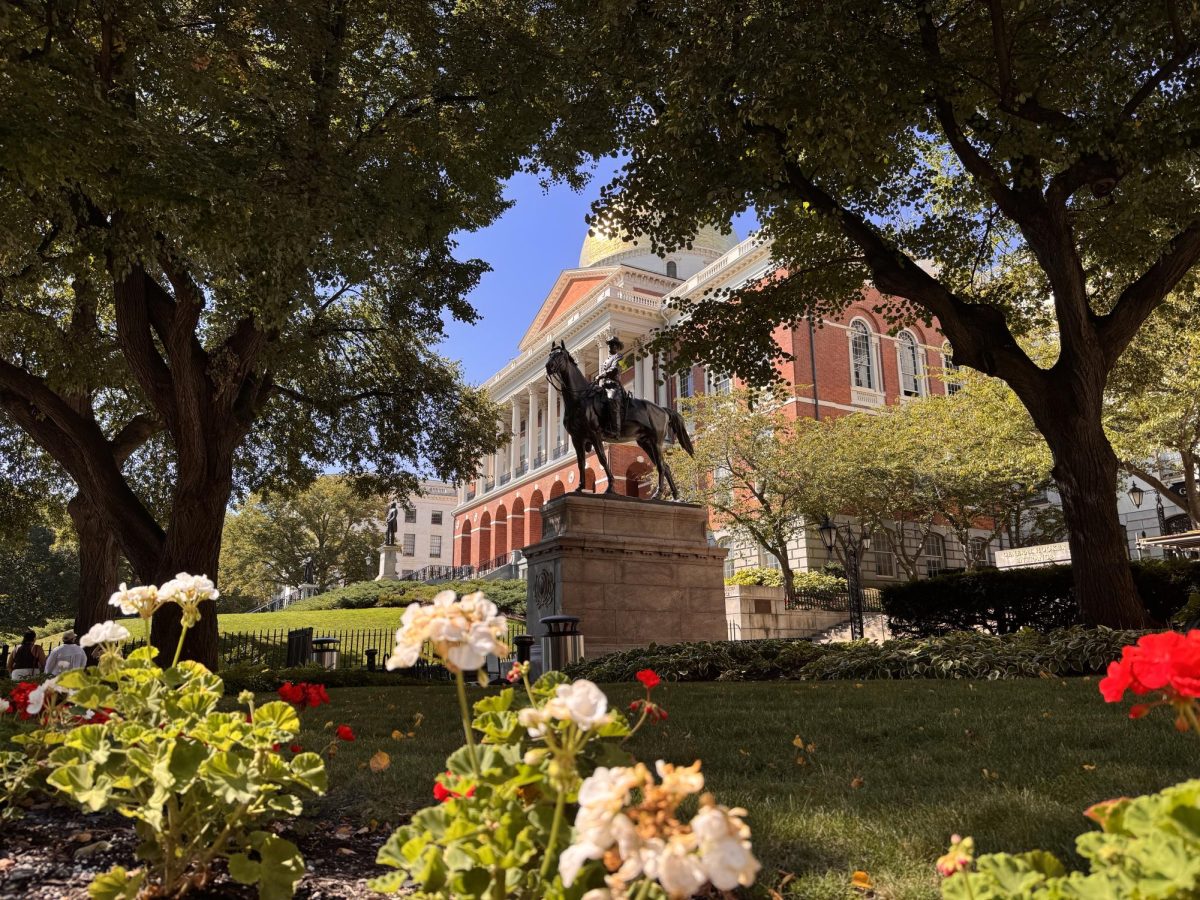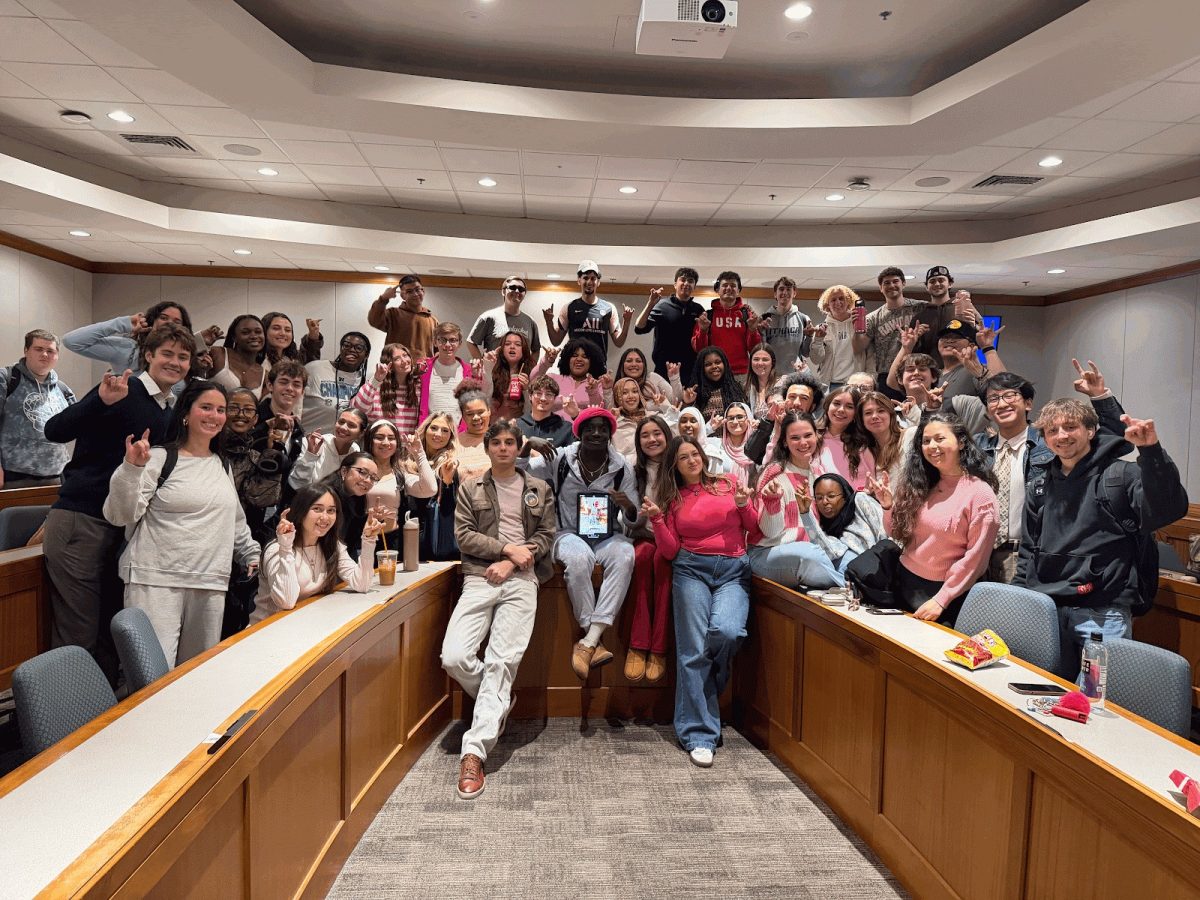Melissa Hanson Asst. News Editor
Biology students at Suffolk are competing their way through a molecular genetics contest that could result in international use of their data.
Assistant Professor Celeste Peterson discovered this competition, Community Assessment of Community Annotation with Ontologies (CACAO). Molecular Genetics is an upper level biology class that focuses on the molecules of life, proteins, RNA and DNA, and how their synthesis and degradation are organized and regulated.
CACAO is a nationwide competition, created by the University of Texas A&M, that has five parts. This year, 11 universities are contributing, and Suffolk is joining in for rounds three and four of the competition. This is the first time a Suffolk class has participated.
“This is more like real science,” says Peterson. “I think it’s really fun.” The first part of participating in the competition involves analytical studying of peer reviewed documents and primary literature. This is where the students are getting information to make annotations of the genes. These annotations are brief predictions of which behaviors genes will affect.
“You have to really dig into the articles,” says Sunny Rosenthal, a student in Peterson’s class. “It’s more than just looking at it, you have to analyze it.” Rosenthal thinks the work is challenging, but knows that she and her classmates will learn quite a bit from participating. The students can even put this on their resume with the title “bio-curator,” according to Peterson.
Most students chose primary literature based on their own interests and studies. Two students, Matthew Broulidakis and Kyle Swerdlow, are doing an independent study on horizontal gene transfer with Dr. Melanie Berkmen, an Assistant Professor in the Biochemistry department, and submit annotations on that subject, according to Peterson.
Once the annotations have been entered in the competition, which is done online due to the distance between the participating universities, the students can challenge each other. Each annotation receives points, but if a student proves another wrong, their points can be stolen. Both Peterson and Rosenthal said the class was eager to have healthy competition against other students and were ready to defend their annotations.
Peterson says there is a “real need for people to curate genomes…This is an opportunity for undergrads who are totally capable for doing this.”
After these rounds of the competition judges will review the annotations and award points where necessary. Once everything is accurate, the information will enter a database that scientists around the world use for research.
“It was cool that we got to learn a new technique…we got to help the science world,” says Rosenthal. Students in the competition separate into teams. Rosenthal is a member of “Team Jaberwocky,” who reviewed literature on the location of proteins in cellular components. Her classmates Minh Bui and Avery Yuan titled her team “The Molecular Menace,” and is currently in second place overall in the competition, and “The Average Condons,” with Nacef Bahri, Salma Goumih, and Kevin Onh are in fourth place overall. Peterson is especially proud of this because participating in CACAO is just one part of their class schedule, while other universities have devoted the entire semester to participating in the competition.
Excitement over CACAO does not end with just Peterson and her students. Peter Burn, chair of the Biology Department says CACAO is “a perfect example of how we can do world class science at an undergraduate teaching institution. I’m proud of our students, and wish them the greatest success.”
Next week the students will be judged on their work and Peterson has her fingers crossed.













